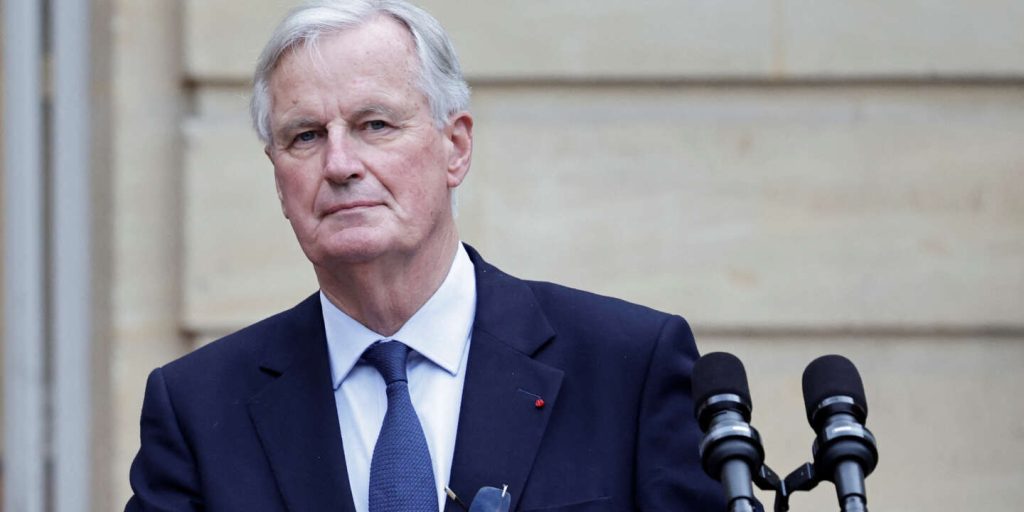Jean-Luc Mélenchon, the leader of La France insoumise, predicts a rapid vote of no confidence for the Barnier government. He believes that Barnier’s fate is sealed, as he will likely be defeated in the National Assembly, possibly on his budget proposal, leading to his downfall through a motion of censure if the opposition parties stay true to their stance. The New Popular Front, which emerged as the winner in the July legislative elections, has already announced that they will vote to censure the government, but they will need the support of the Rassemblement national to succeed.
Mélenchon painted a bleak picture of the current government, describing it as a group of losers with some members merely there for show, while others, like Mr. Retailleau, the president of the majority group in the Senate, will be the true decision-makers. He even hinted that Retailleau might become the Minister of the Interior, implying that he will hold significant influence due to the Senate’s role in passing legislation. Mélenchon emphasized Retailleau’s potential power, suggesting that Macron will have to constantly appease him to secure the support of Les Républicains, reinforcing the idea that Barnier is merely a facade without substantial authority.
Additionally, in Paris, Mathilde Panot, the head of the “insoumis” members of parliament, criticized the leader of the LR senators for using language associated with the far-right, such as referring to people as “French in name only” and discussing “ethnic regression” in working-class neighborhoods. Panot’s remarks highlight the tension and conflicting ideologies within the political landscape, with accusations of extreme rhetoric and divisive language being employed by some members of the conservative party.
Overall, Mélenchon’s statement reflects a growing opposition to the Barnier government, with predictions of a swift downfall fueled by dissatisfaction with its leadership and policies. The potential collaboration between various opposition parties, including the New Popular Front and the Rassemblement national, indicates a united front seeking to challenge the current administration and potentially trigger a motion of censure. The emergence of key figures like Mr. Retailleau as influential decision-makers raises questions about the balance of power within the government and the extent of Macron’s control over legislative processes.
The controversy surrounding Retailleau’s potential role as Minister of the Interior underscores the political maneuvering and power dynamics at play, with suggestions that he could wield considerable influence over government decisions and undermine Macron’s authority. Panot’s criticism of the LR leader’s language highlights the divisive rhetoric and ideological tensions within the political discourse, further complicating the already complex landscape of French politics. As the opposition gears up for a possible motion of censure, the future of the Barnier government remains uncertain, with key players and parties jostling for position and seeking to shape the direction of the country’s leadership and policies.
In conclusion, Jean-Luc Mélenchon’s prediction of a rapid motion of censure for the Barnier government sheds light on the growing discontent and opposition to its leadership. The potential collaboration between various opposition parties and the emergence of influential figures like Mr. Retailleau point to a shifting political landscape and potential power struggles within the government. As tensions escalate and criticisms mount against the current administration, the future of French politics hangs in the balance, with debates over language, ideology, and policy driving the discourse and shaping the direction of the country’s governance.


